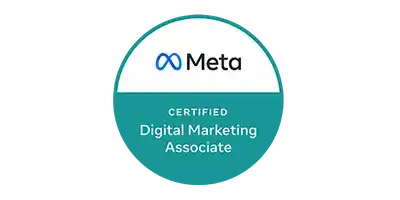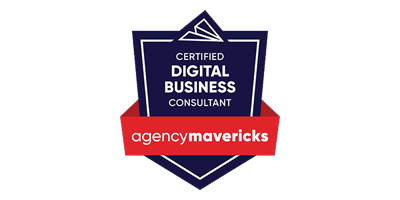Delivering high-quality products and robust software solutions
Empower your business with the cutting-edge software solutions with Gigabit. Our team of experts delivers innovative software development, precision-engineered products, and tailored solutions that exceed industry standards.

What We offer as a Full Service Digital Marketing Agency?
Our combined experience and expertise in branding, marketing and digital allow us to create campaigns, solutions and products that transform brands and organizations – inspiring audiences, attracting new customers, and opening up new possibilities.
Web Development Services
Our teams of expert web developers have handled many complex projects, so you are assured of the best result in web development. We don’t abandon projects, and we meet up with set deadlines.
Responsive Web Design Services
Responsive web design is an approach that makes websites adjust to various devices and screen sizes. Rather than creating separate versions of websites for different devices.
WordPress Development Services
When it comes to expanding business, we offer WordPress Development Services that can keep up with the rapid expansion. our WordPress development solutions can be a one-stop shop.
Shopify Development Services
At Gigabit, we’re renowned Shopify experts bringing you a full suite of Shopify development services right to your doorstep. Our seasoned developers are at the forefront of technology and provide the most.
WooCommerce Development Services
Woocommerce is a free plugin for WordPress that adds e-commerce functionality. it’s completely expandable and mobile-friendly, which may help your website grow incredibly.
Website Development Services
Our website development services can help you achieve your goals, whether you need a custom design, responsive layout, or e-commerce functionality.
eCommerce Development Services
Our eCommerce development services can help you build an online store that is easy to use, visually appealing, and optimized for conversions.
Webflow Development Services
With our team of experienced Webflow developers, you can trust that your website will be not only visually stunning, but also fully functional and optimized.
NFT Development Services
Our NFT development services can help you create and launch your own NFT marketplace, allowing you to sell unique digital assets to collectors around the world.
Creatives Design Services
As a full-service branding and design company, we help you bring your ideas to life. We offer a complete range of creative services that engage and inspire at every touch point. From logos to brand books, to print and digital, we’ve got you covered!
Logo Design & Custom Branding
Our team of experienced designers can help you create a cohesive, visually appealing brand identity that truly represents your business.
Social Media Graphics
Our team of experienced designers can help you create custom graphics that showcase your brand and promote your products or services.
Brand Identity Design
Our brand identity design services can help you establish a clear, consistent look and feel that sets you apart from the competition.
Publications Design
Our publication design services can help you create a wide range of materials, including brochures, flyers, magazines, and books.
UI/UX Design
Our UI/UX design services can help you create an intuitive, engaging user experience that meets the needs of your target audience.
Infographic Design
With our team of experienced designers, you can trust that your infographics will be well-designed, on-brand, and effective.
Graphic Design
Whether you need a single graphic or a full suite of marketing materials, we've got you covered. Let us help you create graphics.
Would you prefer to talk to someone?
Ready to start a project or really curious about our process? Drop us a note or give us a call (901) 249-0909; we’re happy to answer all your questions.
Digital Marketing Services
Digital marketing is a broad term that encompasses all online marketing activities. It includes things like email marketing, social media marketing, display advertising, search engine optimization and more.
Search Engine Optimization
From keyword research and on-page optimization to link building and technical SEO, we'll handle all the details to ensure that your website is optimized for search engines.
Social Media Management
From content creation and scheduling to engagement and analysis, we'll handle all the details to ensure that your social media channels are active, effective, and aligned with your overall marketing efforts.
Digital Marketing
With our team of experienced digital marketing professionals, you can trust that your online presence will be effective and aligned with your overall marketing efforts. you can trust that your online presence will be effective.
Content Marketing
From blog posts and articles to ebooks and webinars, we'll handle all the details to ensure that your content is informative, engaging, and aligned with your overall marketing efforts.
Conversion Rate Optimization
Our conversion rate optimization (CRO) services can help you identify and address the factors that are causing visitors to leave your site without taking action.
Social Media Marketing
With our team of experienced social media marketing professionals, you can trust that your social media presence will be consistent, cohesive, and effective. Let us help you get the most out of social media
Search Engine Marketing
With our team of experienced SEM professionals, you can trust that your online presence will be effective and aligned with your overall marketing efforts. Let us help you reach more customers.
Advertising Services
From traditional media to digital channels like social media, search engines, and online advertising networks, we've got you covered. Let us help you reach more sales with our advertising services.
What Our Clients Say
Gigabit offers a wide range of web services. From website design and development to online marketing, they have the expertise and experience you need. Highly recommended!

Gigabit is the best web design and development company in town. They are very professional, knowledgeable, and offer a wide variety of services for your business needs.

Gigabit is a web design and development company. They have a team of professional who are experts in the field, and they're ready to tackle any project you can throw at them!

Great company and we love their work!

Questions & Answers
Do you have a query regarding our Digital Marketing offerings? You might find the solution here. However, if this is not the case, then please get in touch with us so that we may provide the relevant details.
What is web design?
The term “web design” refers to a website’s front-end design. Work that incorporates graphical user interface (GUI) design and content creation. When you visit a website via a hyperlink or a URL, you may rest assured that the page’s layout and aesthetic appeal have been meticulously planned. Naturally, this motivates the user to spend as much time as possible perusing the site.
A well-designed website provides a satisfying brand experience while discreetly directing you to the desired result. It needs a compelling look, interesting information, and a well-planned structure. Connect with us, we’ve been doing this for over 6 years, and we’d love to discuss making your business shine online with a beautiful, functional website.
How much does web design cost?
A consultation between the client and the firm is the first step in developing an accurate quote for a high-quality web design. The price of even the most basic website redesign should be justified by how well it communicates with the intended audience and stands out from the competition.
Through our experience with a wide range of companies, we’ve honed in on the UX principles that consistently receive positive feedback from our clients. A website’s development price tag is based on these factors. For a simple brochure site, this can be done in a few weeks for approximately $5,000, but for a more complex e-commerce site with lots of products and moving pieces; it can take a few months and cost around $10,000. In this sense, the price of a website is totally up to the aesthetic and functional preferences of the client.
This is a general estimate of what you expect to pay for our web design services.
How to choose the right web design company?
It might be challenging to determine which web design agency to hire and who to trust with the design of your website due to the abundance of both good and bad websites on the internet. Many folks will choose the lowest price they can find.
You may find that the cheapest agency is the best, but you need to be sure they understand what you need and can create a unique website for your brand, and has the functionality you need to convert visitors to clients.
Call your agency before agreeing to the price. Could you remark on their vocabulary? For example, UX and conversions should be mentioned. If they use vague terms like “optimization” or “click-through rates,” avoid them. However, a good web design agency should discuss design aesthetics with successful conversion elements after knowing about you, your business goals, and your target audience.
How much does web development cost?
Design and code must match to develop a website. For six years, Gigabit has developed websites. We created our own Content Management Systems because the limited “off-the-shelf” products didn’t suit our client’s expectations (CMS). It worked well but took time and money. WordPress and Magento allow us to construct websites faster and cheaper than before.
We use WordPress for brochure sites but construct custom CMSs and CRMs whenever possible. It’s quick to deploy, secure, and reliable, letting us focus on user experience and branding. We create custom layouts for your business and launch them on the chosen medium. Web development without design fees is rare.
Web development is rarely a cost on its own as it is most often used to build a site we have designed.
- Standard WordPress Site Development
- Design Implementation: 1 day
- Development: 5 days
- Testing: 1 day @ $300
- Project Management: 1 day
- @ $450= $3,450
- Standard Bespoke Site Development
- Design Implementation: 5 days
- Development: 15 days
- Testing: 3 days @ $300
- Project Management: 3 days
- @ $450= $11,250
How much should you pay for an eCommerce website?
Project-specific e-commerce website design and development costs vary. An e-commerce website needs excellent development and technological skills, whether selling a single bar of heavenly chocolate or a thousand gardening products. In addition, most online shoppers use mobile devices, so every website, whether it sells one or one thousand things, must be mobile-friendly without sacrificing UX functionality or image quality.
We’ll develop a custom website that meets your brand’s goals and recommend a sustainable Content Management System (CMS) like Shopify, Woocommerce, or Magento. Gigabit has built e-commerce websites for years. We understand the needs of a happy, converting customer. We’ll discuss your functional requirements and commercial goals to choose the optimal eCommerce site development option. Your eCommerce website will receive a free quote.
Depending on the technical details and the extent of the product selection, the cost of an e-Commerce site varies substantially. However, prices begin at about $5000.
- Standard Woocommerce and Shopify Sites Development
- Design Implementation: 2 days
- Development: 7 days
- Testing: 1 day @ $300
- Project Management: 1 day
- @ $450= $4,800
- Standard Magento Site Development
- Design Implementation: 5 days
- Development: 15 days
- Testing: 3 days @ $300
- Project Management: 3 days
- @ $450= $11,250
What is usability in web design?
Web design usability recognizes human behavior and guides users to their goals. Design success depends on testing and changing to improve the user experience. Thus it rarely works the first time. Our designers start with wireframes and produce a great user experience. We’ll monitor site accessibility, broken links, loading times, and mobile responsiveness during design and development. We’ll design with simplicity, consistency, and clear information architecture. To be easily relevant to your target audience, usability takes significant study and testing.
What does responsive web design mean?
Websites were developed for a desktop screen when the internet was new, and we used dumb phones. Web design has had to adapt to accommodate multiple desktops, mobile, and tablet screen sizes. For user experience, responsive web design changes navigation, layout, and content. Responsive design may contain different elements than the desktop version, whereas mobile-friendly retains everything the same but scales it down. Responsive web design adapts to the device being used to view it.
How to know when your web design needs an update?
Depending on the reason, websites need updates. You can update your design or website. Changes occur occasionally. However, Google’s algorithms require frequent updates to rank well. Update news and blog posts with relevant keywords and graphics. If feasible, do this monthly. Daily website improvements can boost SEO and growth.
What is web development?
After the design aspects of a website have been finalized, the process known as “website development” can begin. Web development isn’t just about HTML and CSS; there are many other moving parts, such as content management system creation and server and network setup. These things help make a website look professional and load quickly. Developers working with the Lilo web framework are very competent. We have extensive experience with simple text pages and great web apps and can rapidly advise you on the type of web development you’ll need to complement the design and bring your online presence to life.
What is front-end development?
The term “front end development” refers to making a website’s visible, user-facing elements, such as menus and buttons, and making sure they’re attractive and simple to use. It’s what lets a person easily navigate to their desired content and have an engaging experience while doing so. This includes fonts, navigation bars, sliders, and anything else that helps a design stand out from the crowd. A competent web developer has painstakingly crafted all these design elements to work in tandem with your browser utilizing a trifecta of web development languages: HTML, CSS, and JavaScript. Developers on Lilo’s front end collaborate closely with our designers to learn about users, uncover possibilities to improve the user experience (UX) and develop innovative solutions that result in high conversion rates.
What does SEO stand for?
To optimize a website for search engines or SEO, one must know what those letters stand for. A search engine is a tool that helps people find specific information on the web. Keywords are typically used for this purpose. Though Google dominates the market, other search engines exist, such as Microsoft’s Edge and Bing. Simply entering a keyword into the search bar will create a list of relevant results. A page’s ranking is determined by how well it matches the search query. Algorithms, which vary by the search engine, are responsible for these positions.
Optimization is making your website more relevant to search engines so that it appears higher in search engine results (SERP). Better rankings can be achieved by drawing in users who come to your site with a specific goal. To achieve this, however, you need a well-defined search engine optimization (SEO) strategy for your website.
Why is SEO important?
Search engine optimization (SEO) is essential for getting lots of high-quality website traffic. With engagement, website visitors are worthwhile. You want serious customers. Such customers actively seek your products and services. Next, make yourself noticeable in online searches. A well-planned SEO strategy and practices can help a website grow business. Attracting more of your target demographic to your site may increase your conversion rate and brand your organization as an industry leader, making customers happier.
How much does SEO cost?
A solid SEO plan is the best method to expand your business. If web design doesn’t include smart SEO strategies and support at Gigabit, it doesn’t exist for Google. Every marketing campaign must have a purpose, and SEO is no exception. We’ve been in the SEO business for years and know that a decent website design requires strong SEO objectives; they will determine the price. An effective SEO plan will continue to produce results for years to come as long as people search online for you or your organization.
Some businesses may present you with low-cost gimmicks that guarantee immediate ranking improvements. These strategies include keyword stuffing and unethical backlinks and are referred to as “black hat SEO.” These will have a negative impact. Before you can say the term “ranking,” Google will permanently ban you. You need high-quality traffic that wows Google, which calls for a cautious, steady increase and a keen understanding of statistics. Professional SEO is available from Gigabit at a retainer price for a set amount of time. If you want to rank well (and you should), we advise dedicating at least two full days to SEO.
To effectively assist you in developing your ranking by making modifications and tweaks to maximize outcomes. We advise dedicating at least two days each month to managing and improving the SEO of your website. For the two days, the cost is $450. We’ll be happy to discuss what works for you and your budget if you want to spend more time on your SEO.
How much does social media marketing cost?
A strategy is the first step in social media marketing. Every content needs to be created with a specific objective that supports the broader system. A thorough, well-researched social media strategy may be developed in about a week and is typically priced daily. The social media team at Gigabit will speak with you and enquire about your company, your target market, and the outcomes you anticipate from using social media.
The next step is to develop content that aligns with your paid organic plan, post it to your channels, and monitor, evaluate, and optimize it. The price for having an agency do this for you will depend on how many hours per month you would like or require and how much you are willing to pay the agency for social media marketing services.

Would you prefer to talk to someone?
Ready to start a project or really curious about our process? Drop us a note or give us a call (901) 249-0909; we’re happy to answer all your questions.









